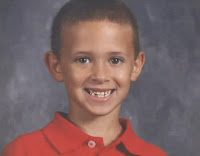The 6 Most Important Things Parents Can Do for Their Child with Asperger’s or High-Functioning Autism
 “We recently got a diagnosis of high-functioning autism for our 6 y.o. son. After researching all the interventions that are recommended, my husband and I are feeling quite overwhelmed. Our son has so much to work on, and we simply don’t know where to begin. Please give us a starting point so we’ll know if we’re on the right path or not. We desperately want our son to be as happy and ‘functional’ as possible.”
“We recently got a diagnosis of high-functioning autism for our 6 y.o. son. After researching all the interventions that are recommended, my husband and I are feeling quite overwhelmed. Our son has so much to work on, and we simply don’t know where to begin. Please give us a starting point so we’ll know if we’re on the right path or not. We desperately want our son to be as happy and ‘functional’ as possible.”Being a parent of a youngster with Asperger’s (AS) or High Functioning Autism (HFA) is both exhausting and rewarding. Whenever you feel confused, apprehensive or worried, know that you are not alone. The good news is this: armed with just a few simple “tools,” your course-of-action can run relatively smoothly.
Although there are many techniques parents will need to employ to successfully raise a child on the autism spectrum, here are the 6 most important ones to consider first:
1. Analyze your AS or HFA youngster’s strengths and weaknesses – and find the right tools to help him or her.
Think about what you know about your youngster before selecting any treatment options. Each youngster on the spectrum is different – there is no “one-size-fits-all” when it comes to interventions. What works wonderfully for one child may backfire drastically for another. Count on the fact that there will be some trial-and-error as you search for the right approach to dealing with your child’s challenges. As you stay the course, there will be clues and indicators of what will work best for YOUR child.
==> How To Prevent Meltdowns and Tantrums In Children With High-Functioning Autism and Asperger's
Pay close attention to your parental instincts. Just because you heard something worked for someone you know - and their youngster got much better - does NOT mean that the same intervention will work for your child. You will have the most success if you know your youngster’s strengths and weaknesses, and find a combination of techniques that are a good match for him or her.
2. Understand that your youngster will NOT know what to expect in social situations. So, teach him or her what to expect in various situations in a very clear and precise manner.
Imagine how a pajama party might seem to a child who has never been to one (e.g., kids running around laughing and jumping, popcorn all over the place, pillow fights, trying to sleep on the floor rather than in your own bed, and so on). Imagine how it would feel to go to your first day of elementary school when you’re around 30 other kids, you don’t know where the bathroom is, you don’t know how to ask the other kids if you can play with them, you’re not sure how to interact with peers in the unstructured environment of lunch time and recess, and so on.
Kids on the autism spectrum have social skills deficits. Thus, they do best when placed FIRST into social situations that interest them and have plenty of structure. As your child ages, expose him to more social situations, and provide him with information about what to expect and how to behave. For example, if your child is meeting his teacher for the first time, let him know exactly what it involves (e.g., going to the school, walking into the classroom, saying “Hi, my name is Max”, shaking the teacher’s hand, making eye contact, listening to the teacher introduce herself, and answering any questions she may have). Never feel that you are breaking things down too far for your AS or HFA child. The more detailed and concrete your instruction – the better!
3. Find activities that your AS or HFA youngster is highly interested in, and help him cultivate friendships within those activities.
Children on the spectrum have difficulty finding and keeping friends. For instance, Michael (a 6-year-old) is friends with James (also 6 years old). Michael has HFA and does not like to be in large groups of people. Michael likes soccer, but James likes to talk to his friends. Michael often becomes frustrated and is not sure what to say when James is around. Michael doesn’t read social cues, doesn’t know how to get into the conversation, and doesn’t like to talk about what James and his friends are talking about.
Because Michael enjoys soccer, finding a soccer team or class that he can attend regularly, and then role-playing and coaching him to help with social skills related to those relationships could evolve into people who know Michael and share an interest with him. In the future, those relationships will turn into friendships and into a network of advocates who will share Michael’s interests.
4. Become your child’s advocate.
As a mother or father, you’re the one who has spent the most time with your child, and you may have already figured out what works and what doesn’t (or are coming close to figuring it out). As an expert on your child, you may find yourself being his advocate all the time.
Much of this advocacy happens in the classroom. You’ll need to tell your child’s teacher what techniques work best, what triggers him, and what calms him down. If you find that the school system is just dragging your child along without actually educating him, you’ll need to advocate by talking to the principal, superintendent, or even a lawyer. It may take all of these people to get the school system to take your child’s education seriously.
5. Appreciate the benefits of consistency and routines.
Example: Shelley wakes up one morning and eats a bowl of cereal, brushes her teeth, gets dressed, then gets on the bus. The next morning, she wakes up and is surprised to find that she has to take a shower before getting dressed. She becomes agitated and has a meltdown. She starts slapping the wall and knocking stuff off of the counter on to the floor. Now all the kids are late to school – and stressed out!
==> Parenting System that Significantly Reduces Defiant Behavior in Teens with Aspergers and High-Functioning Autism
By building in predictability when possible, your AS or HFA child does not have to find other ways to cope (e.g., meltdowns, tantrums, shutdowns, aggression, etc.). Of course, you can’t predict every situation in life, but having a core routine within the family, and preparing your “special needs” child for any upcoming change in routine, will cut down on family stress ten-fold.
In Shelley’s case, maybe she got extremely dirty the night before, but it was too late for her to take a shower. So, you had her get the shower the next morning before school. In this scenario, it would be important to tell her the night before what to expect the next morning. Preferably, you would make a schedule (written or with pictures) so she could visually see what to expect the next day.
Visual schedules are very important when changes in routines are necessary. However, be careful not to over-schedule the routine. Some kids on the spectrum become so dependent on their routines that it can be very upsetting to alter them when “life” happens. Thus, try to build adaptations and variations into your child’s regular routines. This will teach him to cope with the many changes in routines that happen all the time.
6. Take action as soon as possible.
Some therapists have reported working with kids 2 to 3 years old who were diagnosed very early with an autism spectrum disorder that looked like classic Autism (e.g., screaming, banging head into the wall, flapping arms all day with no initiation of communication, etc.) – but with early intervention and treatment, their symptoms fell more in line with high-functioning autism or mild Asperger’s by the time they were 5.
Kids who are already in elementary school and have never had services because the parents thought they were simply late talkers have missed the optimal time for intervention. Thus, the prognosis for improvement is less than ideal.
Parents must catch their child when he is very young and provide treatment. It’s better to help a child who would have been fine either way than to overlook him because you think he will “grow out of it.” Many therapists report working with children who are 5 years old, and the parent knew something was not coming together right for years. Getting help early works. Step through the fear and advocate for the services your youngster needs.
Conclusion–
The initial period of learning about AS or HFA - and all of the necessary therapies and treatments - can be isolating. You may even feel sad at first, or angry that your life with a child on the spectrum is different than the one you dreamed of and different than the lives of most of those around you. Your ideal world will be very different from the world you actually live in. Still, there are many ways to work towards making your life more of how you want it to be.
As you begin to get more involved in the Autism community, there will be more activity and company of others. This involvement will help your situation feel more “normal” as it provides more chances for typical activity and interaction with others. Over time, life and ideals change, and you will begin to dream new dreams for your real world.
As you begin to get more involved in the Autism community, there will be more activity and company of others. This involvement will help your situation feel more “normal” as it provides more chances for typical activity and interaction with others. Over time, life and ideals change, and you will begin to dream new dreams for your real world.
More resources for parents of children and teens with High-Functioning Autism and Asperger's:
==> How To Prevent Meltdowns and Tantrums In Children With High-Functioning Autism and Asperger's
==> Parenting System that Significantly Reduces Defiant Behavior in Teens with Aspergers and High-Functioning Autism
==> Launching Adult Children with Asperger's and High-Functioning Autism: Guide for Parents Who Want to Promote Self-Reliance
==> Teaching Social Skills and Emotion Management to Children and Teens with Asperger's and High-Functioning Autism
==> Parenting Children and Teens with High-Functioning Autism: Comprehensive Handbook
==> Unraveling The Mystery Behind Asperger's and High-Functioning Autism: Audio Book
==> Highly Effective Research-Based Parenting Strategies for Children with Asperger's and High-Functioning Autism
==> How To Prevent Meltdowns and Tantrums In Children With High-Functioning Autism and Asperger's
==> Parenting System that Significantly Reduces Defiant Behavior in Teens with Aspergers and High-Functioning Autism
==> Launching Adult Children with Asperger's and High-Functioning Autism: Guide for Parents Who Want to Promote Self-Reliance
==> Teaching Social Skills and Emotion Management to Children and Teens with Asperger's and High-Functioning Autism
==> Parenting Children and Teens with High-Functioning Autism: Comprehensive Handbook
==> Unraveling The Mystery Behind Asperger's and High-Functioning Autism: Audio Book
==> Highly Effective Research-Based Parenting Strategies for Children with Asperger's and High-Functioning Autism


